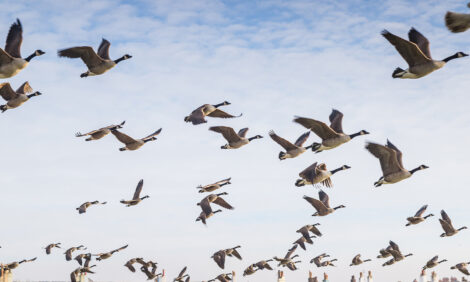



Dairy Quotas in Latvia
Roger Waite, spokesperson for the European Commissioner of Agriculture gives a background to the milk quota system, particularly looking at Latvia.Dairy quotas were introduced in the 1980s in order to make sure we do not have large surpluses of milk products. Every member states has a quota – usually divided into “deliveries” and (much smaller) “direct sales”. These quotas are then divided down into individual quotas per dairy farmer.
If a Member state exceeds its “deliveries” quota or its “direct sales” quota – or both – then a “superlevy” penalty will apply of € 27.83 per 100 kg of overproduction, ie 2.783 € per tonne. Member States (MS) are then obliged to charge those individual producers who exceeded their quota.
NB It is not possible to provide additional quota to a MS, using the underutilization at EU level.
In the 2003 CAP reform, it was decided that the dairy quota regime would only last until April 2015. In the 2008 CAP Health Check, it was confirmed that the dairy quota regime will run out from April 2015 – and that all national quotas will be increased by 5 times 1% every quota year in the period 2009/10 - 2013/14.
2011/12: For the quota year April 2011-March 2012, Latvian production was less than the overall available quota (of roughly 766 000t) and therefore no Superlevy will be triggered for 2011/12. Provisional figures put production at roughly 7.8% under quota for “deliveries” and 21% under quota for “direct sales”.
2012/2013: For the current quota year which began in April 2012, the Latvian quota is 773 399t. (The division between deliveries and direct sales will take place at the end of the milk quota year, based on notifications from the Member States.)
Latvian Milk deliveries for the first three month of the 2012/2013 milk quota year Have increased by 10.5% !! If Latvian farmers keep this level of growth (which is an individual decision/responsibility of the farmer) for the rest of the milk quota year, it is expected that they will exceed their national quota (by around 1.7%), despite the 1% extra quota following the Health Check decisions.
“Latvia has not yet exceeded its quota for 2012/13 because the quota year runs until the end of March 2013. However, the expansion seen in recent months means that producers will have to be aware of the potential threat of exceeding quota and thereby triggering superlevy penalties,” said Mr Waite.


